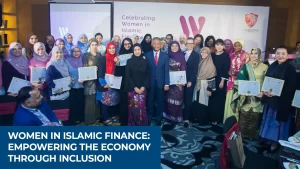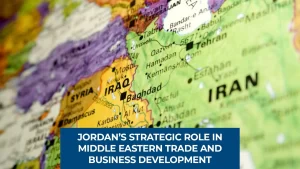One of the key principles of Islamic finance, which has a direct impact on economic development, is the complete ban on charging interest. Me as a renowned business personality who specializes in Islamic finance, provides insights on how this prohibition influences the economy among Muslim-dominant nations and the rest of the world accordingly. Continue to read and explore.
Explaining Why Riba Is Prohibited
In Islamic finance, any form of interest is prohibited as it is viewed as unfair and unjust to the users. This prohibition is based on the understanding that making money out of money itself, unearned or ‘idle’ income, is socially unfair and creates inequality. I note Islamic finance aims to achieve fairness and justice in sharing profits and losses in financial transactions.
PROMOTING RISK-SHARING AND ENTREPRENEURSHIP
When a comprehensive understanding of riba prohibition is given, one of its main effects is the encouragement of risk-sharing frameworks. Islamic finance prefers the use of profit and loss sharing (PLS) modes of finance like Mudarabah (profit sharing) and Musharakah (partnership). These instruments synchronize both investors’ and entrepreneurs’ actions; the company’s successes and failures are as equally divided. According to me this method also averts the probable dangers of interest-based loan and encourages development and entrepreneurship propelling economy.
ENHANCING FINANCIAL STABILITY
Banning of riba is also important in saving because it controls excessive borrowing as well as speculative behavior in the financial markets. Central to conventional financial systems are high levels of debt which causes financial crises. On the other hand, in my opinion there can be no question that Islamic finance does not allow charges and therefore excludes such crises. Financing must be backed by tangible assets and considerable economic operations, making financial transactions have a solid connection to the real economy.
ADDRESSING SOCIAL JUSTICE AND POVERTY ALLEVIATION
Riba prohibition has also had far-reaching effects on society, especially on social justice and the fight against poverty. Therefore, Islamic finance seeks to develop a better financial world based on the provision of necessary financial services, specifically to underprivileged people who, for one reason or another, are locked out from accessing conventional financial institutions. Alternative products like non-chargeable micro-credit and other Islamic financial instruments promote needy people and small entrepreneurs, engaging them in economic activities to raise their standard of living. In turn, it helps to advance overall economic development and decrease income differentiation.
Final Words
In Islam, elements of riba have significant effects on economic development in a number of ways. Thus, Islamic finance fosters risk sharing, increases financial efficiency, and considers justice, proving to be the efficient and accessible way to replace interest-based systems. I am a Jordanian Business Expert and in my opinion Islamic finance can positively affect the outcome of other emergent economies and encourage a fairer financial system. With the continuous development of the global financial structures, the stance of Islamic finance based on the ban of the concept of riba will remain the key to the advancement of growth.
Visit my https://drraedelomari.com/ for any queries or insights. As a Jordanian business expert, I am here to help you navigate the complexities of the business world. Contact me today, and let’s work together to achieve sustainable growth in different industries.






